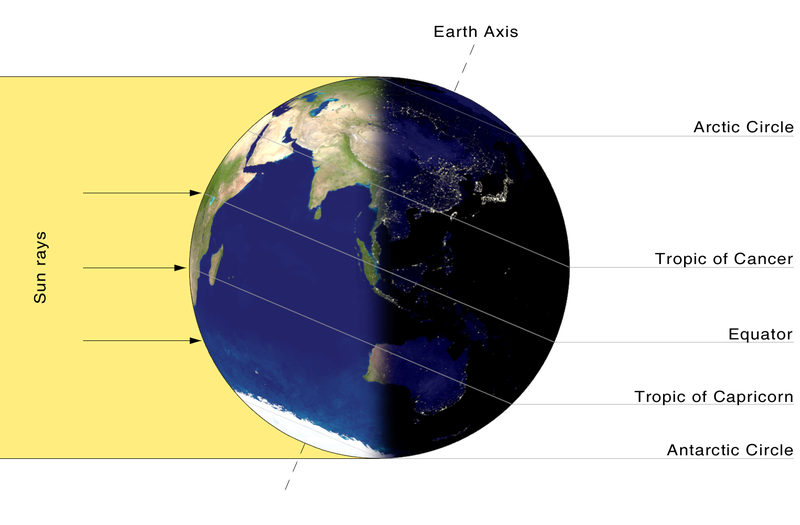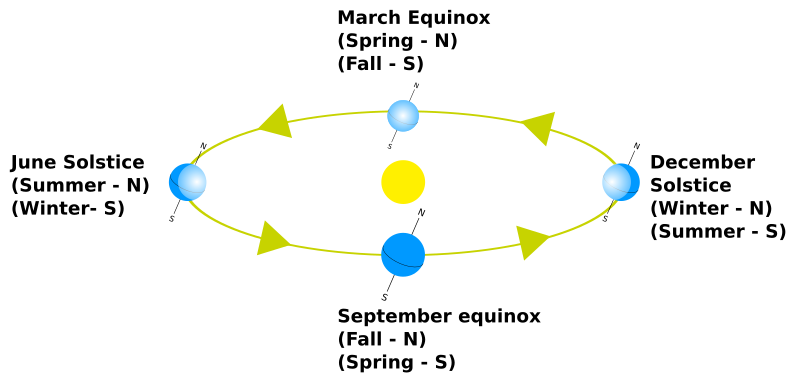Tomorrow will mark the Summer Solstice for the Northern Hemisphere, leading us into the first full day of summer on Thursday. The first day of summer is also known as the "longest day of the year". For us on the Northeast coast of the U.S., sunrise will be just after 5 am, and sunset will be close to 8:30 pm. That's nearly 15 1/2 hours of daylight.
I think we all have a basic understanding of why this happens. Earth is tilted on its axis, and on June 20th, 2012, that tilt aims us "Northern-Hemisphere-ers" at the sun for longer in Earth's rotation. Nearly 64% of the time Earth spends rotating tomorrow, we'll be on the "lit up" side of the planet.
For the Winter Solstice, this is all flipped.
During the Winter Solstice, we spend most of our 24-hour rotation period on the DARK side of the planet. If you're still having trouble visualizing this, take a look at the Tropic of Cancer. For the Summer Solstice, on this side-view of Earth, you see that about 2/3 of the line is in the daylight, 1/3 in the dark. It's opposite on the Winter Solstice picture. And all this is simply a result of Earth orbiting the Sun.
So if it's so basic, why am I blogging about it?
...Because this is a perfect example of how far we've come in our understanding of the universe.
People have been observing the solstice for thousands of years. We've created monuments around the world to showcase these special days (Stonehenge, anyone?). We've spent centuries arguing about what the solstice tells us concerning our position in space. And today, the scientific explanation of the solstice seems so simple and commonplace, we barely give it a second thought.
That's AWESOME.
And that is the power of science: to pursue the understanding of a phenomenon until it's figured out and explained to the rest of humanity.
Now, sadly of course, there are many people who still have no real understanding of what the solstice is about. I work with kids every day who are just wrapping their minds around this. But as far as scientific ideas go, the solstice is actually one of the ones best understood by the general public.
So tomorrow, as you enjoy your extra sunshine, just think about that for a minute. Think about how far we've come with science. Think about what we know (and take for granted knowing) now, that our great-ancestors did not. And then pause to think about what sorts of weird phenomenon science will be able to explain in the future. Just what will an everyday-person on the street have a decent understanding of in the year 3012, that would blow our minds today?
(For my writer-readers out there...consider that a prompt!)



No comments:
Post a Comment